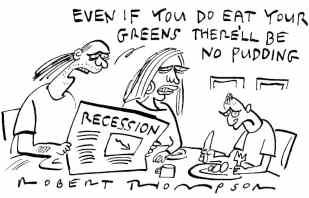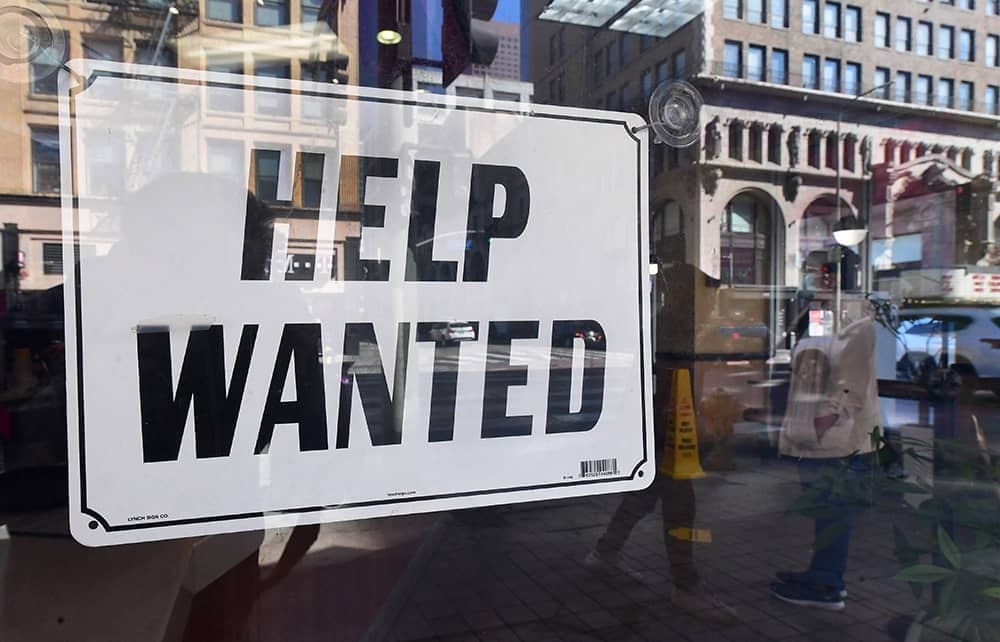It’s possible that I owe Joe Biden some sort of an apology, however mealy-mouthed it might be. Last week I mentioned here the weird prevarication from the US government and its supporters over whether or not the US is technically in a recession. It arose from the news that the US had two successive quarters of negative GDP growth. Biden’s critics – myself included – leapt to declare the US in recession. According to the Bank of England, the UK is heading for a recession too, so there should be no especial shame in accepting the fact and then trying to deal with it.
But then last Friday the US jobs figures landed and it became clear that the situation in the country is curiouser than we might have predicted. Everybody was expecting a contraction in the economy. Yet when the jobs figures came out they showed the opposite. Payroll employment in the US rose by 528,000 in July – more than double what was predicted, edging the national unemployment rate down to 3.5 per cent. That figure is not explainable simply by saying that this is people getting back to work after Covid.
A similarly curious situation is occurring in the UK, where unemployment rates are near historic lows at 3.8 per cent and the number of payroll employees is far above pre-pandemic levels.

Something in this may feel distinctly familiar to readers. On the one hand the economy is terrible. The news grows more dire by the day. The average UK household energy bill has almost doubled in the past year, with more rises on the way. And yet speak to almost any business owner and they will tell you the difficulty they are having in finding people to fill jobs. Try to employ a workman in the south of England at the moment and you’ll find yourself engaging in a mission of subterfuge and contact-raiding that would make one of P.G. Wodehouse’s chef-hunting aunts blush.
So it seems that if we are heading for a recession it is a very unusual one. People are not being laid off. Home repossessions are not happening. Two points to which you might add the word ‘Yet’. But still there is something deeply strange about it.
The former US Secretary of the Treasury Larry Summers this week said out loud what a lot of people are whispering, which is that the employment figures are in fact too good. Because, as the former Clinton and Obama appointee pointed out, the thing to get under control is inflation. So long as the jobless figures remain this low there is little hope of that.
It is a useful thing having characters such as Summers who can say things like this, because it is not the sort of point an elected politician would be rewarded for making. You can see the headlines if a candidate for political office in any country was caught bemoaning the fact that too many people are in work. But there is some sense in what Summers is saying. So long as people are in work they will keep spending. And even if wages are able to keep increasing there is no way they will be able to increase at the level of inflation. Corporate profits aren’t declining. Consumers aren’t stopping spending. The economy needs to cool, but apart from raising interest rates there is no certainty about how to achieve what in America they call a soft landing – which is Fed speak for slowing inflation without causing recession.
We have had to run as fast and as far as we can, but we keep being pulled backwards
Strangely, the whole thing reminds me of something that you can see in some gyms. As I am panting away on my treadmill I sometimes survey people doing the latest workout fads, and one that interests me the most is watching some poor sod doing this strange thing with a massive elastic band. Basically the trainer attaches the client to this human-sized band which is itself attached to a pillar. The trainer then urges the victim to run as fast and as far as they can. It is a sight which can be richly entertaining to those of us who enjoy observing the misfortune of others.
A fit person might run some metres. A less athletic sort might plump down to the floor relatively early. Of course the crux comes when the elastic band really starts to kick in and pull them back. The last centimetres look like agony. Naturally the trainer urges the guinea pig to keep running at the exact moment that the elasticity is tugging at them. It is these last steps, or attempted steps, that count.
Anyhow, I was watching this unpleasant exercise when it suddenly dawned on me that this was my generation. Not the obsession with fitness, but the feeling that we have gone through our earning lives with a vast elastic band about our waist, threatening always to pull us back. We have had to run as fast and far as we can, but the more our legs seem to be carrying us the more we meet this pull backwards.
There are plenty reasons for that: the results of more than a decade of quantitative easing and other money-printing exercises; years of zero rewards for savers; escalating property prices that have far outpaced earnings. These and many more financial facts are responsible for the number of people my age who have run far less far than they thought they would, have ended up running for no reward, sitting down where they are, or in some cases catapulting right back to the start.
A gym would need a much shorter and more tightly restrictive band to illustrate what has happened to the generation below mine – that generation who in Britain can’t get on the housing ladder and who in America cannot pay off their student debt.
Perhaps it is stagflation that we are in. Much that is going on seems uncharted territory. All that I know is that if the measure of human happiness is the gap between what you thought you were going to get and what you got, there are going to be a couple of very disappointed generations coming. It’s a fact not even the US President can do very much to avert.







Comments